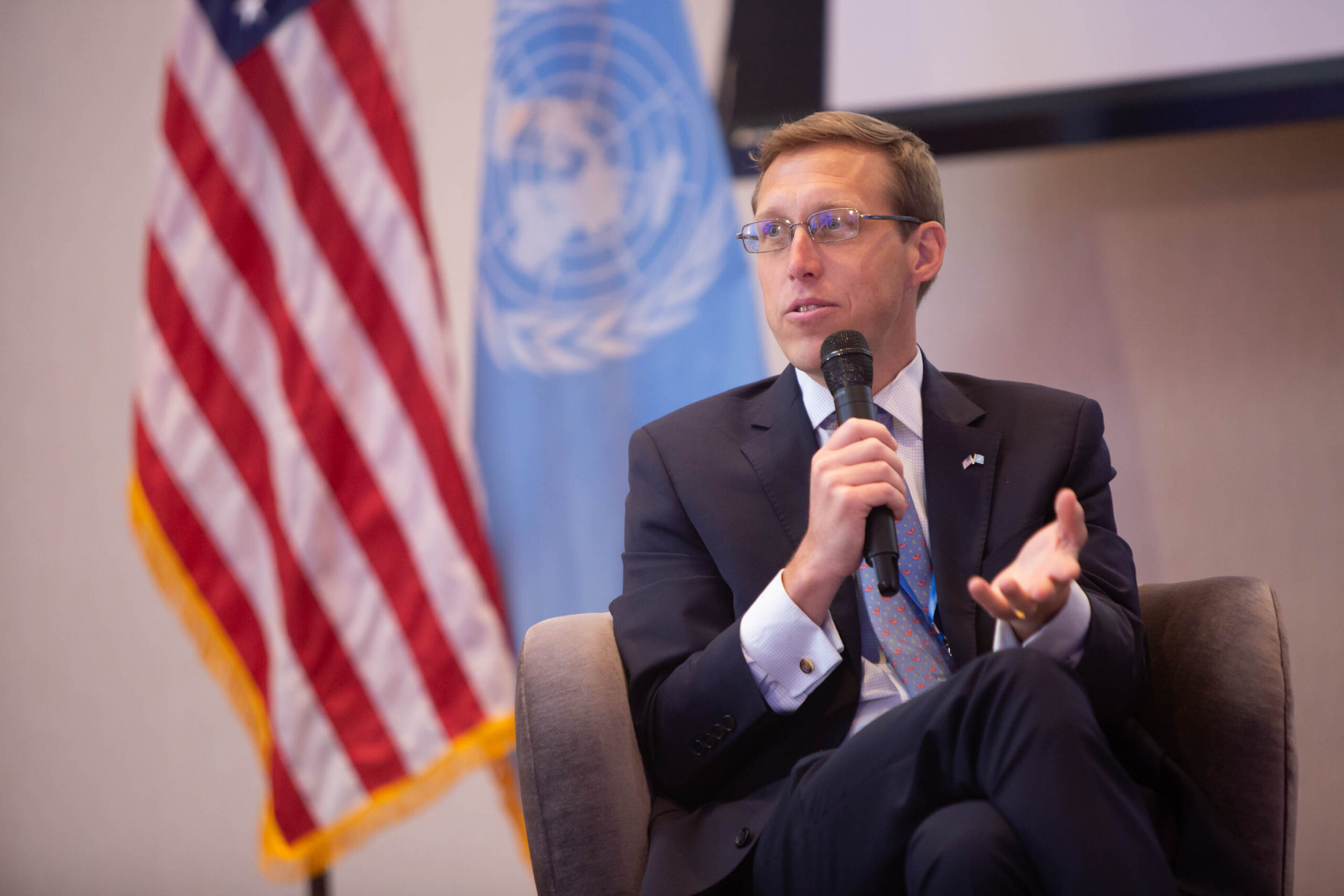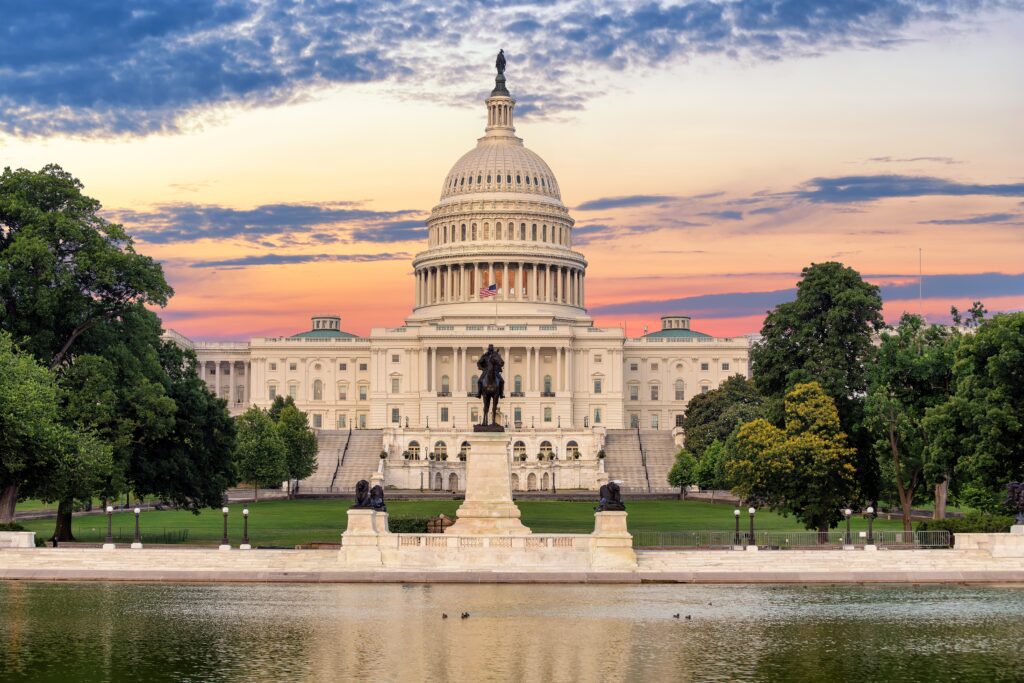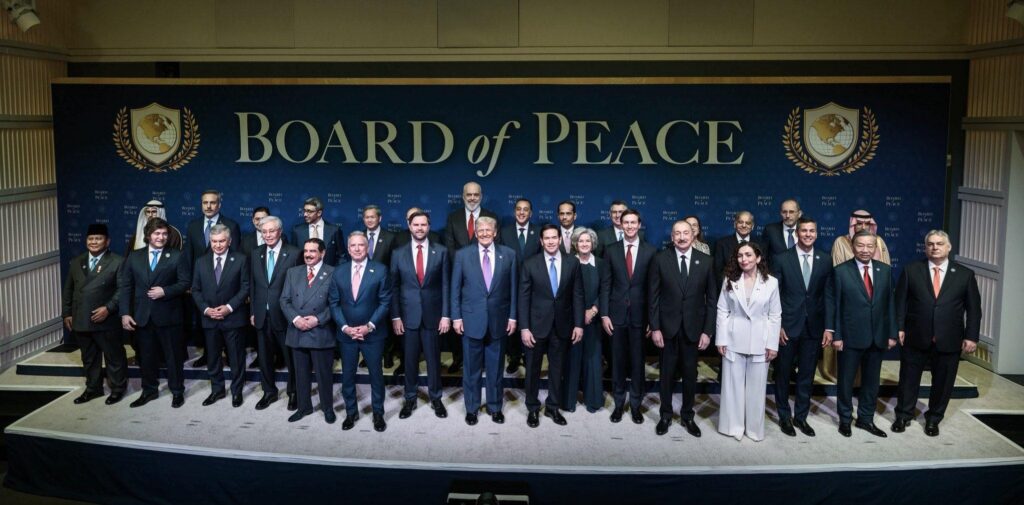A Conversation with Jordie Hannum, Executive Director of the Better World Campaign
For the first time in American history, Congress is considering a final spending bill that would eliminate all funding for the UN regular budget, leading to the loss of our vote in the UN General Assembly. For an insider’s perspective on what it all means, we spoke with Jordie Hannum, Executive Director of the Better World Campaign.
Q: The UN is a big organization, so let’s start with some basics. What exactly is the UN regular budget?
All 193 members of the UN are required to fund certain parts of the organization as a condition of membership. The amount each member must pay is called its “assessed contribution.” Assessed contributions vary widely and are determined by a formula that factors in gross national income and population. These mandatory contributions help fund the UN “regular budget” (sometimes called UNRB) and UN peacekeeping operations. The total UN regular budget is $3.4 billion — about a fifth of Rhode Island’s annual budget. Given the size of the U.S. economy, America pays 22% of the UNRB, totaling $700 million. Many member states also make voluntary contributions to specific UN programs, like the World Food Programme and UNICEF.
Q: What does the budget fund?
There’s a perception that the UN regular budget is solely administrative, like keeping the lights on at UN headquarters in New York or paying for UN-sponsored conferences. While the budget does cover those things, it also supports programs in places all over the globe. For instance, nearly a quarter of the UNRB goes to “special political missions” (SPMs). These are field presences in fragile states that are undergoing or emerging from conflict. SPMs lead a range of vital work to promote peace and stability, including facilitating negotiations between warring parties, monitoring ceasefires and peace agreements, providing technical assistance for free and fair elections, investigating and reporting on human rights violations, coordinating humanitarian and development assistance, and so much more. Currently, SPMs are deployed in Afghanistan, Iraq, Yemen, Somalia, Libya, Colombia, and Haiti all places that are critical to U.S. interests and values.
Q: Does funding for the regular budget do anything to support security here at home?
Yes. The regular budget funds oversight of implementation of legally-binding sanctions by the UN Security Council. From its seat on the Council, the U.S. has successfully pushed for asset freezes, travel bans, arms embargoes, and trade restrictions on rogue state and terrorist groups like Al-Qaeda and ISIS. The regular budget also helps fund the work of panels of independent experts who monitor international compliance with sanctions, report on sanctioned entities or individuals, and recommend ways to strengthen enforcement.
Q: What about the impact of U.S. funding to the UN to help people around the world?
Like the famous Saturday Night Live “Taco Town” commercial, the UN regular budget just keeps on giving. It’s a key source of funding for the UN’s human rights work, including investigatory mechanisms that document human rights violations in a host of contexts – from Russia’s invasion of Ukraine to Iran’s suppression of political dissent, the civil war in Syria, and the Taliban’s escalating suppression of women’s rights. The work of the UN Human Rights Council, High Commissioner for Human Rights, and other entities help raise public awareness of human rights violations, magnify the voices of dissidents and civil society organizations on the ground, and provide a tool for pressuring repressive governments and holding abusers accountable.
Q: Some people think defunding the UN will save the U.S. a lot of money. True?
How do you say false in the UN’s six official languages? No, cutting funding will cost us more than it saves.
First off, the entire International Affairs budget, which includes the State Department, USAID, and the UN, is about $70 billion. This is less than 1% of the whole U.S federal budget. What’s more, the entirety of U.S. contributions to the UN is less than 0.2% of the annual federal budget. So no, we wouldn’t save money; we’d only leave our allies in the lurch and undermine critical activities that we benefit from in numerous ways. Alternatively, if we went to a model in which every country paid only what it wanted, as some have suggested, it won’t work as planned. In fact, some years ago, a Congressionally-mandated report noted that such models lead to U.S. priorities being underfunded.
Q: It’s been said that U.S. defunding would be a gift to China and Russia. What does that mean?
Russia and China want nothing more than for the U.S. to lose our vote in the General Assembly by not paying our dues. This is fodder for their own castigation of the U.S. as unwilling to help solve global problems. While China and Russia provide nowhere near the level of assistance the U.S. does, they would certainly fill the void from our disengagement at a moment when the global challenges we face – climate change, terrorism, and pandemic preparedness – are more existential than ever. Fact is, China and Russia are increasingly seeking to leverage their growing economic and political power to challenge the U.S. and our values.
By the way, China is now the second largest contributor to UN regular and peacekeeping budgets. They’re a permanent member of the UN Security Council. And they’re among the top ten providers of troops to UN peacekeeping missions. If we leave the table, China is more than willing to fill that gap. So, if Members of Congress are concerned about the rise of China in international organizations, withdrawing from them and withholding money to them will only make matters worse.
Q: Is that what happened with UNESCO?
You betcha. UNESCO is a perfect example of the failure of defunding UN entities. The U.S. just recently rejoined after defunding the organization in 2011 and exiting UNECSO entirely in 2018. With the U.S. withdrawal, programs we valued around literacy, freedom of the press, and Holocaust education were curtailed or eliminated. China then became the organization’s largest funder and sought to use that as leverage to push UNESCO to support vocational and job training programs in countries partnering with China on the Belt and Road Initiative, for example. Now that we’ve rejoined the organization, we need to play catch-up – both in terms of funding and program influence.
And of note, there were no savings accrued by leaving; we still owe outstanding arrears to UNESCO.
__
Still curious about how the UN budget works? Read more.





